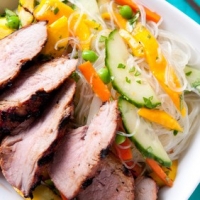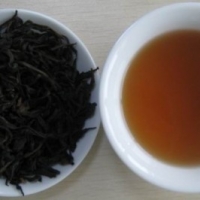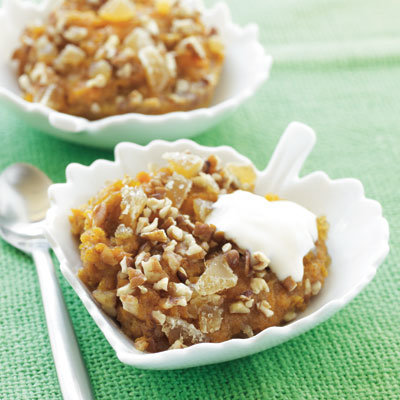How Good is Protein For Your Weight Loss?
If you wanted to build a brick wall, you wouldn't reach for cardboard, glass or cloth. You would reach for bricks. It's the same way within your body. If you want to build muscle, you reach for the protein, and not fat, carbohydrates or fiber. Make no mistake, fats, carbs and fiber are all important for health as well, and everyone needs some of them, however none of them will do the same job that protein will for you. You hear about protein in muscle-building, but you seldom hear about using it for weight loss.
Protein is not stored like fat, or converted into fat by the body.
Carbohydrates, sugars, fats and oils can all be converted into (your) fat. Fat is a store-house of energy which the body can choose to use at any time. It prevents against starvation and provides a ready source of energy when others aren't available. However, protein is an immediate energy source that's very efficient. You'll hear about the supposed "Fat Burning Switch" on various protein drinks and powders. There may not be an actual 'button' to press, but by eating plenty of quality protein, you are giving your body a signal that "the food supply is fine, you don't need to keep storing fat".
Is your protein 'good quality'?
There are an abundance of 'food items' masquerading as protein which aren't actually good quality. These can include over cooked foods, foods treated with radiation (it doesn't change the look or the taste, but it wrecks the nutrients while killing bacteria), foods with too many preservatives, and foods with too many chemicals used to grow or process them. For example, some chickens are fed arsenic (that's poisonous to humans and birds) to force them to gain weight. Of course, it's still present in the meat when you get it, lowering the nutritional value. Unhealthy animals of any kind won't have healthy meat. So its best to try to stay away from 'processed meats' when trying to get your protein.
Choosing the right type of protein is important for quality.
Picking up a bucket of fried chicken may provide protein, but it is clearly not your best bet for health and maintaining a healthy weight. Choosing your protein is easy and healthy when you look at this list:
Eggs- Eggs are a good source of protein, but free-range eggs are the best. Chickens who are outside in the sun add lots of important Vitamin D to their eggs. Eggs from the healthiest and happiest chickens are a real powerhouse of nutrients and protein for you. Typical egg-mills are a terrible place for hens, with poor living conditions and a bad diet. Their terrible circumstances lead them to make poor eggs.
Grass fed beef- Cows were meant to eat grass and be outdoors in the sun, moving around. A natural diet and proper exercise keeps most animals healthy without the need for excessive antibiotics, hormones and medicines. E.Coli (the terrible bacteria) is almost non-existent on grass fed cows. When animals are raised in natural conditions they produce better, healthier meat. Eating antibiotics and hormones isn't good for you, but they're passed along to you when you eat most factory meats.
Fish and chicken- Again, "the wilder the better". Wild caught Alaskan salmon, and out-door chickens are the healthiest. Avoiding large fish such as swordfish, shark and tuna will also limit your possible mercury exposure. Wild salmon and Norwegian cod provide healthy omega 3 oil and protein.
Beans and Nuts - Animals aren't the only source of healthy protein. Plant protein usually isn't complete, but by combining different kinds of protein in the same meal, you can still get all the amino acids you need. Combinations such as grains and legumes (like wheat, or rice, and beans) corn and beans or seeds and beans will provide the essential amino acids. Protein can contain up to 20 amino acids. Your body can make (via combining different nutrients from foods you eat) all of them, except for 8. The final 8, you have to consume. Plant sources are also wonderful to consider, as they don't have the added fat or expense of meats.
Chia Seeds- The chia seed is rare, in that it is a 100% complete protein. It does not have the plant estrogens that soy has. Usually, complete protein is only found in meat. With vegetable sources, you must combine different sources to get complete protein. However, with this seed, you don't have to. They're 23% protein by weight, too, which is a nice, high ratio for a plant. The seeds have no flavor, so you can add them to anything you already like to eat. Anything from cereal, to salads, to sandwiches can have chia added to it without altering the taste. It's so easy to use that there's no excuse not to reach for this easy protein boost!
How else does protein contribute to help you lose weight?
Protein does not raise blood sugar levels. When your insulin is regulated and balanced (not spiking with sugar or carb-over-load) your body won't want to store excess fat incase the 'quick burning carbs' suddenly run out.
When your body has plenty of protein each day, it is not in 'survival mode'. It will be much more likely to allow any fat stores to be burned off, because real, healthy fuel is always available. Remember, your body doesn't know that food is always, and will always be readily available.
Give your body the 'fat fighting signal' by adding easy, healthy and tasty protein to your diet!
Related Articles
-
2 Ways to Start Burning fat Quickly
1. Start Exercising first thing in the morning.As so
-
Fat Burning Furnace - Best and Easiest Diet without the Stress!
Learn How to Lose 26 Pounds in 7 Weeks! Best and Easiest Diet without
-
Factors To Help You Decide If Lap Band Surgery Is Right For You
There are many things to consider when trying to decide if bariatri
-
How To Flatten My Stomach Fast? - Whats the Best Diet to Lose Midsection Fat & Weight EASILY & QUICKLY?!
Have you been trying to figure out how to flatten my stomach fast...bu
-
Acupuncture Loss Weight
Acupuncture for weight loss is very effective as it challenges the bod
-
Fiber in your diet
Getting a sufficient amount of fiber in your diet is good for your hea
- DON'T MISS
- The Diet Solution Rapidshare
- How To Cop An Attitude With An Overzealous Hostess
- Exercise After Baby Birth: The First Step To A New You
- Dont Let Friends And Family Sabotage Your Diet
- Shed Your Extra Fat With The Best Herbal Tea For Weight Loss
- Proper Hydration and Weight Loss are Closely Related
- Calorie Burn? Know The Optimum Walking Speed For Greatest Results
- Lose Stomach Fat In 3 Weeks
- Shed Off Some Pounds
- Diet Diary Your way to Double the Weight Loss




